Good morning,
I would just make a quick phone call to your vet to get their take on it. They will know best for the patient since they are familiar with the situation. Best of luck!
My cat has herpes & has had worms in the past. She has had 3 litters of kittens before. The first litter was 3 stillborns. The second litter was only 2 babies (one of them being boo of course.) The third happened recently about 4 weeks ago & there was 3 of them (we’re not sure if it was the same father as the last two.) The kittens seemed very healthy but with having other outdoor cats we had to often give them flea baths & even then the fleas would still be there & climb up to their faces but obviously we were hesitant getting their faces. Their mother fed them very well (I could even say maybe over fed them) & they got plenty of rest. The only concern I would say I noticed is how one of them only seemed to use three of her legs, but I didn’t think much about it because I assumed she was young & just still learning how to walk. Then all of a sudden a few hours before she passed she kind of just really wanted nothing to do with anything & just keep sleeping. When I saw she was dead later I noticed brown squiggly things on her, I figured it was either flea eggs or some type of worm. It couldn’t have been the same worms her mother used to have because those were white. We obviously took her away from the others, and then their mother seemed to not want much to do with the two ones still alive. She’s done this in the past when she had her stillborns, she was depressed for a while. I figured it could either be that or my mother read online that it could be because she knows they’re sick & she doesn’t want anything to do with it. So me & my family purchased kitten formula, a bottle, & turkey wet food made specifically for kittens. We’ve made an effort to feed them 15 ml of the formula every 4 hours. We also provided them with warm blankets and shelter since they are lacking their mothers body heat. One of them was acting like the kitten that had just passed, just really not up for doing anything. The next morning we saw them & they seemed fine, then we check on them about 15 minutes later & that same kitten was from before was dead. We’re now making an effort to really keep an eye on this one & do everything we can. He was doing so well this morning, & we’ve been holding him to our chest for more intense warmth & continued to feed him 15 ml of formula every 4 hours. Now for the past 4 hours or so he’s starting to look really lazy like the other two. We’re scared he’s not going to make it very long
Comments
I have a 17 year old female cat recently diagnosed with kidney disease, treatment is with a prescription low-phosphorous diet.
She is suffering with stiff joints, I am considering supplements such as glucosamine to help. But are such supplements suitable for her diet? I believe glucosamine itself is kidney-safe, but wonder about other additives such as salt or potassium which she needs to avoid.
Any advice on safe glucosamine supplements for a cat with kidney problems?
Many thanks
Comments
Please help!
My soon to be 11 year old shnoodle (6 pounds) has to follow me around everywhere. We moved to a new house about two months ago and she has went pee on the stairs, bedroom and hallway at the new house. I finally had to gate the stairway and confine her to first floor only. Which has hardwood floors. She crys the whole time I’m upstairs getting ready for work or folding laundry. I’ve been crating her with my other dog at night and all she does is whine cry and scratch at blankets, the bed and metal bars on crate. Yesterday I went and bought her a crate of her own because I thought maybe she just didn’t have enough room to lay down with being in the same crate as my other dog. Well it was the same old thing last night plus she pooped in her pin and this afternoon pooped right by the pin after she had just been outside. I’m afraid she’s going to her herself too by scratching those metal bars. I tried a mesh crate and she got her toenail stuck in the mesh material and I had to cut the material to get her lose. Any thoughts on what I should do? I’ve tried crating her in my room but she doesn’t sleep she just whines, crys and scratches… PLEASE HELP!!!
Thank you
DeAnna
Comments
My cocker spaniel is 18 months old. Only one of his testicles dropped and he had what we thought was a retained one. He went in to be neutered today and after two hours under the vet couldn’t find the other ball!
He will do a blood test in a few months to check for testosterone. If there’s none then it looks like he only ever had one but if there is hormone then it’s in there somewhere.
I’m worried sick as the reason we got this done was retained testicles are at a higher risk for cancer. Has anyone experienced this with their dog? Did the dog go on to be okay?
Comments
Good morning,
I want to say that I had written back in April about my dog who I suspect has IVDD. I took Dr. Magnifico’s advice and went to another veterinarian other than the one who told me my only option was surgery. This new veterinarian said she suspects my fur baby has IVDD but instead of saying his only option was surgery, she continued to give me the RX for steroids. She said she became a vet because her own dog had IVDD and had surgery and it did not rectify the situation. She said no dog should be made to suffer and if he improves on the steroids she would not withhold care. What a breath of fresh air!!! My dog has been on the steroids for a little bit now and is doing so much better. He is able to walk around without much of a limp, sit in his window, and play with us. He is so much better. I’m not sure how long it will help but we are grateful and I appreciate your advice to get a second opinion and do not give up. Thank you from the bottom of my heart.
Comments
I could use some advice to keep my dog from eating cat poop. We have 1 dog and 2 cats. On our first floor there is a mudroom with a pet gate with a cat door. The cats have their litter boxes on one side of the mudroom and food on the other side. This arrangement has worked for 8 years. My daughter’s young cat has had digestive issues for her entire life and would poop on the floor outside the box once a week. We tried all different kinds of boxes and litter and probiotics and food but no changes. She also hates the feel of litter. We tried all kinds and newspaper and towels and pee pads…you name it.
For a month she decided to poop on my daughter’s bed twice a week…which of course was a cleaning nightmare. Sometimes she pooped on the bed while my daughter was sleeping in it.
Finally we found a limited ingredient food that worked along side of a probiotic and her poops are now more manageable for her, less painful I’m guessing and pretty regular. We added a litterbox upstairs to my daughter’s bedroom but she would never use it. We moved it to the large hallway outside my daughter’s room where it was darker and more private and she still didn’t use it. Purchased cat attraction litter and after 1 week she finally used the upstairs box to poop. I held my excitement but it’s been 3 weeks now and no more pooping on the bed. Her poops are also a lot less messy and stinky. Now my problem is if she goes at night the dog jumps right up and eats it. I caught her doing this twice but she was too fast to stop. Other times you can smell that she must have pooped but it’s gone. She’s only going upstairs so I don’t want to take the box away. She’s so picky with boxes and how she sits in the box and how it smells a covered litter box won’t work. There isn’t way to put a gate up in that hallway as it’s a super old house and shaped weird. I’m afraid any change to the box will stop all the good progress. My dog probably gets to the litter box before us about half the time–so it’s not every time. My dog is healthy, eats well, is up to date on everything and is well taken care of. Thanks for your patience with the long explanation.
Comments
My 12 year old Jack Russell just recently had a some drops of blood in her stool. She was straining a bit the last time she went, and this time she was straining a lot. Her stool wasn’t completely solid, nor was it diarrhea. She has been very gassy the past couple of days. Now her stomach is making noises, but she just passes gas and it stops. She ate her food normally before this happened, and now she doesn’t seem to have any other problems besides being gassy. Do I need to be concerned, or could it be from straining so much?
Comments
My almost 6 month old puppy is having diarrhea. We changed his food about 2 weeks from Purina pro plan puppy to the purina pro plan large breed food. He is a lab/mastiff mix. Do you think it’s the food causing the diarrhea? Should I switched him back to the old stuff? Or give him more time? He is acting fine other then the diarrhea. Thanks!
Comments
My 9 month old puppy keeps on chewing his tail relentlessly and chewing his feet. He also sticks both his tail and feet down his throat as far as they will go. When he is playing with toys he keeps squashing them and trying to swallow them whole. He seems frustrated when doing this but he will be playing and then will break away to chew tail or feet. He won’t stop trying to eat EVERYTHING. Three trips previously to the vet to remove large things he has swallowed. He has so much energy and not just normal pup energy.. he does not nap at all through the day. He can go on hours of massive runs through the day and does not even lie down once through the day. Constantly on the go, no off button at all. Becoming quite dominant with other dogs and has started barking at me for attention when he’s not getting any. He has started mouthing people when he meets them, not aggressively but more for attention. He isn’t neutered but people have told me that may be a good start. The behavioural issues are a new thing, he’s been perfect up until the past couple of weeks. Chewing his tail and feet has been going on months. Have been to the vets about it but they don’t seem interested and basically said to think about having his tail docked, he will still attempt to chew what is left so it would never heal!







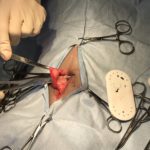
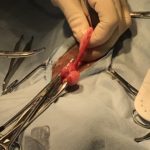
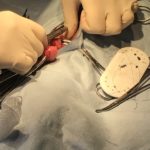
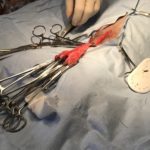
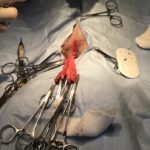
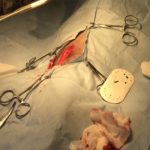
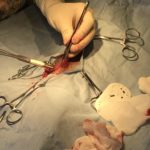
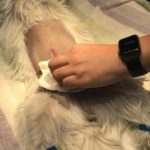
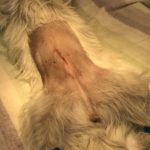
Good morning. My advice would be to get to a vet. I would also advise spaying this cat in an effort to prevent this same event from repeating itself as this is the third time you’re going through this. Best of luck.
I agree with Sarah. You need a vet for the litter as well as for your queen – spay her, speuter the kittens when they’re ready for their new homes. Stop the cycle of producing sick cats.
Hello,
I’m sorry to hear about your kittens. There are so many things that this could be. It’s really almost impossible for me to even speculate. I think it would be really helpful to provide basic medical care. Like parasite control and treatment and vaccines. And yes of course spaying and neutering to prevent future litters and the high mortality associated with them. I would guess that it is probably a few simple things. Parasites, disease, exposure are the big killers for cats and kittens. I applaud your compassion but I think it’s time to start providing more medical intervention. If it helps it was a story much like yours that compelled me to become a veterinarian. I was determined to never watch another pet die without being able to intervene and do all I could to save them. I wish you all well.